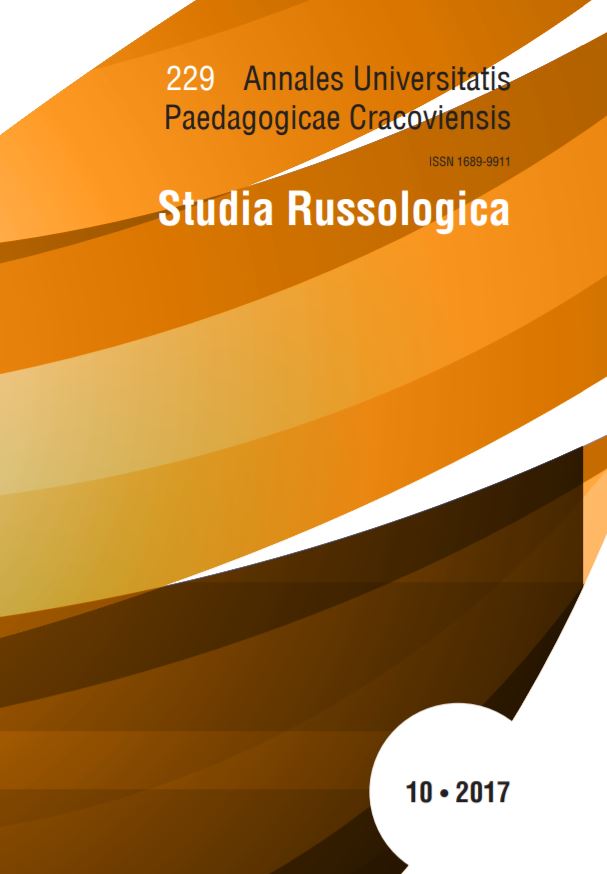Лев Шестов. Дилемма знания и веры
Lev Shestov. Dilemma of Knowledge and Belief
Author(s): Nina RakovskayaSubject(s): Studies of Literature
Published by: Wydawnictwo Uniwersytetu Komisji Edukacji Narodowej w Krakowie
Keywords: criticism; a paradoxical; a discourse; existential; критика; парадоксальность; дискурс; экзистенциал; система
Summary/Abstract: В статье актуализируются религиозно-философский и литературоведческий подходыЛ. Шестова к литературе. Рассматривается особенность метафизического дискурсакритика. Отмечается парадоксальность Л. Шестова, обусловленная его мировидени-ем. Делается акцент на размышлении Л. Шестова о литературе как познании бытия;сущность идей Л. Шестова заключается в определении экзистенциалов в художествен-ных текстах. Отмечается, что с точки зрения критика философия основывается нарациональном мышлении, абсолютном и всеобщих правилах, но откровение художни-ка познается только личным опытом и открытием божественного. Мир художествен-ного творчества определяется «произволом писателя», т.е. его интуицией и прозрени-ем. В статье указывается, что включение богословских, философских, литературныхтекстов позволяет назвать литературную критику Л. Шестова не только философско-эстетической, экзистенциальной, но и интегративной. Монотематизм критика под-тверждается системой повторяющихся мотивов и лейтмотивов, интертекстуальны-ми элементами, концентрическими кругами, повторами, вопросами с отрицательнойконнотацией, вследствие которых остается «чистое философское поле» для размыш-лений. Так как в большинстве случаев Л. Шестов заимствует цитаты из первоисточ-ников, добавляя собственный перевод и точные данные об источнике, возникает впе-чатление, что они играют роль доказательств и научного знания. Однако Л. Шестовкатегорически против такого знания, следовательно, вновь возникает противоречие,которое можно назвать парадоксом его дискурса.In the article the religious philosophical and literary approaches of L. Shestov to the Russianliterature are updated. The metaphysical discourse of literary criticism is learned. L. Shestov’sparadoxical that caused by world seeing of the critic and his author’s model of the world isalso noted. Emphasized the preference of literature as a subject of philosophical reflectionof L. Shestov. The essence of ideas of L. Shestov is in definition of existential in art texts. Thephilosophy is based on rational thinking, absolute and general rules, but revelation of theartist is learned only by personal experience and opening of divine. The world of art creativityis defined by «the writer’s arbitrariness»: his intuition and work. In article is specified thatinterpretation of theological, philosophical, literary texts allows to name the literary criticismof L. Shestov not only philosophical and esthetic, existential, but also to talk about an integrityof his model. Monothematic of the critic is confirmed by system of the repeating motives andkey-notes, intertextual elements. In this regard it is possible to speak about concentric circles,peculiar repetitions in L. Shestov’s style and about his manner to put ques-tions, without givinganswers. Moreover, in his questions the negative connotation is obvious and as a resultthere is «an open philosophical field» for reflections. As in most cases L. Shestov borrowsquotes from primary sources, adding own translation and exact data about a source, there isan impression that they play a role of proofs and scientific knowledge. However L. Shestovcategorically against such knowledge, therefore, contradiction which it is possible to call paradoxof his discourse is once again raised.
Journal: Studia Russologica
- Issue Year: 10/2017
- Issue No: 1
- Page Range: 93-102
- Page Count: 10
- Language: Russian

